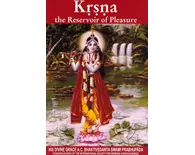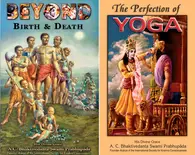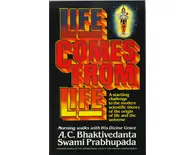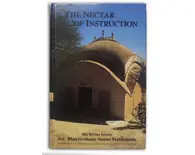Popular Related Items
About this item
The "Changing Bodies" diorama itself is made of resin and fiberglass which is painted and looks very lifelike. It looks amazing, much better than we can show in the photos. It is a three dimensional diorama. The figures are set against a background that represents the sky. The diorama has provisions in the back that serve as a stand. So it can sit on a table and can also be mounted on a wall.
The size of the "Changing Bodies" diorama unboxed is (L) 79 cm x (W) 48.5 cm x (H) 12.5 cm. The image itself is made of resin and fiberglass against a plywood front painted backdrop with the back wrapped in velvet cloth. Its weight is approximately 9.7 kg. The diorama has provisions in the back for mounting brass rods that serve as a stand but you can also have the same hung on the wall by your own arrangement.
Boxed for delivery purposes, 1 diorama will measure (L) 86 cm x (W) 55.5 cm x (H) 19.5 cm and weigh approximately 10.5 kg.

As the embodied soul continuously passes, in this body, from boyhood to youth to old age, the soul similarly passes into another body at death. A self-realized soul is not bewildered by such a change.
Since every living entity is an individual soul, each is changing his body every moment, manifesting sometimes as a child, sometimes as a youth, and sometimes as an old man. Yet the same spirit soul is there and does not undergo any change. This individual soul finally changes the body at death and transmigrates to another body; and since it is sure to have another body in the next birth--either material or spiritual--there was no cause for lamentation by Arjuna on account of death, neither for Bhisma nor for Drona, for whom he was so much concerned. Rather, he should rejoice for their changing bodies from old to new ones, thereby rejuvenating their energy. Such changes of body account for varieties of enjoyment or suffering, according to one's work in life. So Bhisma and Drona, being noble souls, were surely going to have either spiritual bodies in the next life, or at least life in heavenly bodies for superior enjoyment of material existence. So, in either case, there was no cause of lamentation.
Any man who has perfect knowledge of the constitution of the individual soul, the Supersoul, and nature--both material and spiritual--is called a dhira or a most sober man. Such a man is never deluded by the change of bodies. The Mayavadi theory of oneness of the spirit soul cannot be entertained on the ground that the spirit soul cannot be cut into pieces as a fragmental portion. Such cutting into different individual souls would make the Supreme cleavable or changeable, against the principle of the Supreme Soul being unchangeable.



![Case of 20 - Krsna Book [1970, Compact, Single Volume] Case of 20 - Krsna Book [1970, Compact, Single Volume]](https://krishnastore.com/images/cache/krsna-the-supreme-personality-of-godhead-1970-edition-195x155.webp)

![Case of 60 Sri Isopanisad [1969 Edition] -- Hardcover Case of 60 Sri Isopanisad [1969 Edition] -- Hardcover](https://krishnastore.com/images/cache/SriIsopanisadCoverNewHardback-195x155.webp)
![Case of 8 Sets Krsna Book 2 Volume Set [1970] - (16 Books in Total) Case of 8 Sets Krsna Book 2 Volume Set [1970] - (16 Books in Total)](https://krishnastore.com/images/cache/KrsnaCover-195x155.webp)

![Case of 24 Teachings of Lord Caitanya [1968 Edition] Case of 24 Teachings of Lord Caitanya [1968 Edition]](https://krishnastore.com/images/cache/tlc-195x155.webp)
![Case of 28 - The Nectar of Devotion [1972 Ed.] Case of 28 - The Nectar of Devotion [1972 Ed.]](https://krishnastore.com/images/cache/Nectar-of-Devotion-2018-cover-195x155.webp)



